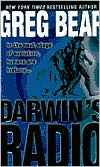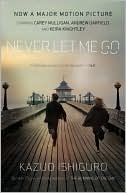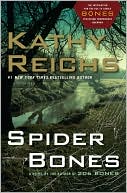Darwin's Radio (Darwin Series #1)
A 2000 HUGO AWARD NOMINEE\ Ancient diseases encoded in the DNA of humans wait like sleeping dragons to wake and infect again—or so molecular biologist Kaye Lang believes. And now it looks as if her controversial theory is in fact chilling reality. For Christopher Dicken, a "virus hunter" at the Epidemic Intelligence Service, has pursued an elusive flu-like disease that strikes down expectant mothers and their offspring. Then a major discovery high in the Alps —the preserved bodies of a...
Search in google:
Virus hunter Christopher Dicken is a man on a mission, following a trail of rumors, government cover-ups, and dead bodies around the globe in search of a mysterious disease that strikes only pregnant women and invariably results in miscarriage.Locus - Gary K. Wolfe...[O]ne of the most intelligent and original thrillers of recent years....[Draws] on a significant amount of current research on evolution, the human genome, and particularly human endogenous retroviruses....[A]ll this is worked out with the kind of inevitability of a good scientific investigation...
The Alps, near the Austrian Border with Italy AUGUST\ The flat afternoon sky spread over the black and gray mountains like a stage backdrop, the color of a dog's pale crazy eye.\ His ankles aching and back burning from a misplaced loop of nylon rope, Mitch Rafelson followed Tilde's quick female form along the margin between the white firn and a dust of new snow on the field. Mingled with the ice boulders of the fall, crenels and spikes of old ice had been sculpted by summer heat into milky, flint-edged knives.\ To Mitch's left, the mountains rose over the jumble of black boulders flanking the broken slope of the ice fall. On the right, in the full glare of the sun, the ice rose in blinding brilliance to the perfect catenary of the cirque.\ Franco was about twenty yards to the south, hidden by the rim of Mitch's goggles. Mitch could hear him but not see him. Some kilometers behind, also out of sight now, was the brilliant orange, round fiberglass-and-aluminum bivouac where they had made their last rest stop. He did not know how many kilometers they were from the last hut, whose name he had forgotten; but the memory of bright sun and warm tea in the sitting room, the Gaststube, gave him some strength. When this ordeal was over, he would get another cup of strong tea and sit in the Gaststube and thank God he was warm and alive.\ They were approaching the wall of rock and a bridge of snow lying over a chasm dug by meltwater. These now-frozen streams formed during the spring and summer and eroded the edge of the glacier. Beyond the bridge, depending from a U-shaped depression in the wall, rose what looked like a gnome's upside-down castle, or a pipe organ carved from ice: a frozen waterfall spread out in many thick columns. Chunks of dislodged ice and drifts of snow gathered around the dirty white of the base; sun burnished the cream and white at the top.\ Franco came into view as if out of a fog and joined up with Tilde. So far they had been on relatively level glacier. Now it seemed that Tilde and Franco were going to scale the pipe organ.\ Mitch stopped for a moment and reached behind to pull out his ice ax. He pushed up his goggles, crouched, then fell back on his butt with a grunt to check his crampons. Ice balls between the spikes yielded to his knife.\ Tilde walked back a few yards to speak to him. He looked up at her, his thick dark eyebrows forming a bridge over a pushed-up nose, round green eyes blinking at the cold.\ "This saves us an hour," Tilde said, pointing at the pipe organ. "It's late. You've slowed us down." Her English came precise from thin lips, with a seductive Austrian accent. She had a slight but well-proportioned figure, white blond hair tucked under a dark blue Polartec cap, an elfin face with clear gray eyes. Attractive, but not Mitch's type; still, they had been lovers of the moment before Franco arrived.\ "I told you I haven't climbed in eight years," Mitch said. Franco was showing him up handily. The Italian leaned on his ax near the pipe organ.\ Tilde weighed and measured everything, took only the best, discarded the second best, yet never cut ties in case her past connections should prove useful. Franco had a square jaw and white teeth and a square head with thick black hair shaved at the sides, an eagle nose, Mediterranean olive skin, broad shoulders and arms knotted with muscles, fine hands, very strong. He was not too smart for Tilde, but no dummy, either. Mitch could imagine Tilde pulled from her thick Austrian forest by the prospect of bedding Franco, light against dark, like layers in a torte. He felt curiously detached from this image. Tilde made love with a mechanical rigor that had deceived Mitch for a time, until he realized she was merely going through the moves, one after the other, as a kind of intellectual exercise. She ate the same way. Nothing moved her deeply, yet she had real wit at times, and a lovely smile that drew lines on the corners of those thin, precise lips.\ "We must go down before sunset," Tilde said. "I don't know what the weather will do. It's two hours to the cave. Not very far, but a hard climb. If we're lucky, you'll have an hour to look at what we've found."\ "I'll do my best," Mitch said. "How far are we from the tourist trails? I haven't seen any red paint in hours."\ Tilde pulled away her goggles to wipe them, gave him a flash smile with no warmth. "No tourists up here. Most good climbers stay away, too. But I know my way."\ "Snow goddess," Mitch said.\ "What do you expect?" she said, taking it as a compliment. "I've climbed here since I was a girl."\ "You're still a girl," Mitch said. "Twenty-five, twenty-six?"\ She had never revealed her age to Mitch. Now she appraised him as if he were a gemstone she might reconsider purchasing. "I am thirty-two. Franco is forty but he's faster than you."\ "To hell with Franco," Mitch said without anger.\ Tilde curled her lip in amusement. "We are all weird today," she said, turning away. "Even Franco feels it. But another Iceman ... what would that be worth?"\ The very thought shortened Mitch's breath, and he did not need that now. His excitement curled back on itself, mixing with his exhaustion. "I don't know," he said.
\ Michael A. GoldmanDarwin's Radiois an entertaining, even riveting story, delivered poetically. It portrays scientist as real people, responding to the intense politics of the biomedical world, the funding imperative in public and private sector alike, and the terrifying challenge of a disease that threatens to decimate the human species. It takes a hard look at the challenges faced by a woman scientist with radical ideas, and the excitement of discovering a totally new way of looking at biological evolution. Whether you read it to pass a cold, snowy night by the fire, or to free your mind for the new paradigms that will emerge in the next millennium, I promise you an engaging journey. \ — Nature\ \ \ \ \ Gary K. Wolfe...[O]ne of the most intelligent and original thrillers of recent years....[Draws] on a significant amount of current research on evolution, the human genome, and particularly human endogenous retroviruses....[A]ll this is worked out with the kind of inevitability of a good scientific investigation...\ — Locus\ \ \ Publishers WeeklyIn the medical/SF tradition of Robin Cook, Bear (Blood Music) spins an outlandish tale of evolutionary apocalypse. In an ice cave in the Swiss Alps, Mitch Rafelson, a renegade paleontologist, discovers a frozen Neanderthal family, including an oddly evolved infant. Meantime, in Soviet Georgia, Kaye Lang, a microbiologist, is investigating a massacre site, where pregnant women were exterminated. These events relate--by way of elliptical scientific reasoning--to a retrovirus being hunted by U.S. government scientist Christopher Dicken. Called SHEVA, it causes genetic mutations in embryos and may also be an agent of evolution, ushering into being a new race of humans. Is it a sexually transmitted disease? Or, more sinister, is it a God-sent means of delivering up a new Adam for the millennium? When Mitch and Kaye fall in love, then decide to bring their own SHEVA baby to full term, they are about to find out the truth firsthand. This complicated tale is read somberly by the deep-voiced Rudnicki, who works hard to keep the sense of drama high through all the mumbo jumbo. Simultaneous release with the Ballantine hardcover. (Sept.) Copyright 1999 Cahners Business Information.\ \ \ \ \ Library JournalThe discovery of a sexually transmitted retrovirus heralds a breakthrough in the understanding of the human genotype while spelling potential disaster for the human race--and the beginning of a new phase in evolution. As scientists and researchers wage a desperate battle to unlock the secrets of the virus known as SHEVA, a few far-sighted individuals attempt to cope with the possibility that something entirely new might replace humankind in the evolutionary pattern. Bear (Blood Music) remains in the forefront of speculative sf, displaying a genius for portraying the excitement of hard science through the struggles of his all-too-human characters. Filled with the author's lucid intelligence, this compelling novel should appeal to fans of science mystery as well as to hard-core sf readers. A priority purchase. Copyright 1999 Cahners Business Information.\ \ \ \ \ Russell LetsonThe SF Idea that drives [the story] is an intriguing and nicely presented version of punctuated evolution....Bear is one of a handful of writers in the field who manage both the complexity of the intellectual material and the solidity and depth of feeling required for a "novel of ideas" to be a real novel.\ — Locus\ \ \ \ \ Robert KillhefferDarwin's Radio is far superior to other recent thrillers on similar themes, such as John Darnton's Neanderthal, Mark Canter's Ember from the Sun, and Phillip Kerr's Esau, not only because Bear creates fuller, more realistic characters and situations, but also because Bear understands the science behind his ideas more deeply. The implications of dozens of recent discoveries in molecular biology, DNA studies, anthropology, and epidemiology all contribute to the ideas that drive Darwin's Radio, and these roots in the details of current research (not simply the headlines) make Bear's premise more than just the engine of a plot.\ —Fantsy & Science Fiction Magazine\ \ \ \ \ Kirkus ReviewsContemporary SF about human evolution, from the author of Dinosaur Summer (1998), etc. In a high Alpine ice cave, dissident archaeologist Mitch Rafelson investigates three mummified corpses, perfectly preserved by the cold. The adults, male and female, appear to be Neanderthals•but their infant's a modern human! In the Republic of Georgia, microbiologist Kaye Lang probes an execution-style mass murder where all the female victims were pregnant. At the Centers for Disease Control in Atlanta, virus expert Christopher Dicken ponders SHEVA, a human endogenous retrovirus (it•s attached to human chromosomes) that causes miscarriages. SHEVA's ability to evade the body•s normal defenses alarms the Administration bigwigs. Shockingly, SHEVA causes•without sexual contact•a second pregnancy after the initial miscarriage. Kaye and Dicken agree that SHEVA isn't a disease and has been present in the human genome for millions of years. Stranger yet, Mitch's mummies also contain SHEVA, as do the Georgia dead. Mitch and Kaye conclude that SHEVA somehow causes an evolution event, mediating the appearance of a new type of human. But Dicken, jealously watching Kaye pair off with Mitch, switches sides to support the Administration. In this view, SHEVA, by shutting down human reproduction, represents a deadly threat to humanity, justifying extreme countermeasures. With Kaye deliberately pregnant, she and Mitch must become fugitives, while the country's social collapse parallels the beleaguered Administration's ever more savage policies. Absorbing and ingenious, but despite Bear's helpful afterword and glossary you'll need to be biologically literate to follow the argument. (Author tour)\ \








